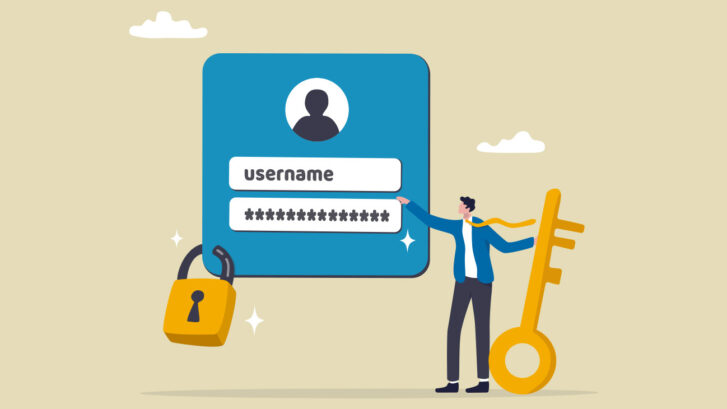Ever thought of your phone number as something as precious and private as your password? Well, it’s high time you do! In today’s digital era, your phone number is much more than just a means of communication—it’s a unique identifier that can unlock a treasure trove of personal information.
In this article we will cover:
- How Phones Impact our Lives
- The Value of a Phone Number
- Types of Phone Number Scams
- Best Practices to Guard Your Phone Number
The Ubiquity of Phones
Understanding the Importance of Phones
We are living in an interconnected world, where mobile phones have become an extension of ourselves. From keeping in touch with loved ones, managing bank accounts, to controlling smart home devices, they play a pivotal role in our lives.
How Phones Impact Our Daily Lives
We might not realize it, but these pocket-sized devices hold tremendous power and, unfortunately, vulnerabilities too.
Your Phone Number as a Key
How Phone Numbers Are Used
Your phone number often acts as a key to various accounts, including email, social media, banking, and more. It’s used for verification, password resets, and two-factor authentication.
Potential Risks Involved
This means that if it falls into the wrong hands, it can be used to gain unauthorized access to your sensitive data. Scary, isn’t it?
The Power of Personal Information
The Value of Your Phone Number
Your phone number, like your social security number or password, is a piece of your digital identity. It’s valuable to hackers and cybercriminals who can exploit it for their gain.
How Information Can Be Misused
Imagine a cybercriminal gaining access to your email account through a password reset, or a scammer tricking your bank into believing they are you. The possibilities are alarming!
Phishing Attacks
What Are Phishing Attacks
Phishing is a type of cyber attack where the attacker impersonates a legitimate entity to trick individuals into providing their private data.
How Phishing Works
Phishing often begins with a seemingly innocuous email. If your phone number is compromised, it can lead to more personalized and convincing attacks.
Steps to Avoid Phishing
Always verify the source of a message, especially if it’s asking for personal information. Avoid clicking on suspicious links and immediately report any suspicious activities to your service provider.
Smishing Attacks
Understanding Smishing
Smishing is a type of phishing attack that uses text messages. Just like phishing, it tricks you into giving away personal information, but through SMS.
How Smishing Works
Smishing usually involves a message urging immediate action, like a problem with your bank account. The aim is to scare you into responding without thinking.
Protecting Yourself from Smishing
Be vigilant about unsolicited messages, especially those requiring immediate action. If in doubt, contact the company directly using known contact details.
Vishing Attacks
Understanding Vishing
Vishing, short for “voice phishing,” is another form of phishing attack, where fraudsters use phone calls instead of emails or text messages. Similar to phishing and smishing, vishing aims to deceive you into revealing sensitive personal or financial information over the phone.
How Vishing Works
Vishing attacks usually involve a fraudster posing as a representative from a trusted institution, such as your bank, a government agency, or a tech support service. The caller may claim there is an urgent situation requiring your immediate action, such as a compromised bank account or a legal issue. They will typically ask for sensitive information, such as credit card numbers, social security numbers, or passwords.
Protecting Yourself from Vishing
Always be skeptical of unsolicited phone calls requesting personal or financial information. If you receive such a call, don’t give out any information. Instead, hang up and call back using the official contact number of the institution they claim to represent. Remember that legitimate organizations will typically not ask for sensitive information over the phone. Install a reputable caller ID app on your phone to screen for potential vishing calls. Finally, regularly update your phone’s software, as updates often include patches for security vulnerabilities that vishers could exploit.
Robocalls and Spam Calls
The Dangers of Robocalls
Robocalls are pre-recorded phone calls often used for advertising. However, they can also be a front for scams and frauds.
Identifying Spam Calls
Fraudulent robocalls may claim to be from a trusted institution and ask for sensitive information. Always be skeptical of unsolicited calls asking for personal details.
Blocking Unwanted Calls
Use features on your device or third-party apps to block robocalls and spam calls.
Phone Number Recycling
What Is Phone Number Recycling
Phone number recycling refers to the practice of reassigning old phone numbers to new users. This could potentially expose your old accounts linked to the number.
Why It’s a Security Concern
If the new owner decides to ‘recover’ accounts linked to their new number, they could gain access to your personal information.
How to Protect Your Identity
When changing your phone number, make sure to update all your accounts linked to the old number.
Best Practices to Guard Your Phone Number
Keep It Private
Treat your phone number like your password. Don’t share it unnecessarily and be selective about who you give it to.
Call Blockers
Use a call blocker like YouMail that not only blocks known robocalls, but gives you the opportunity to share an “out of service” message to blocked callers.
Use of Virtual Phone Numbers
Consider using a virtual phone number for situations where you have to give out your number but want to keep your actual number private.
Guarding your phone number like your password is no longer an option but a necessity in our digitized world. By understanding the risks and taking appropriate measures, you can improve your digital security game. Remember, in the world of cybersecurity, prevention is better than cure!
FAQs About Phone Number Security
It depends on who you’re giving it to and why. It’s best to avoid sharing your number unless it’s necessary.
Yes, hackers can use your phone number to gain access to accounts that use your number for verification or password reset.
Be vigilant about unsolicited messages. Never click on suspicious links or provide personal information unless you’ve verified the source.
Most devices and many third-party apps offer features to block these calls. Report spam calls to your service provider.
A virtual phone number is a number that isn’t tied to a specific phone line. You can use it to receive calls and messages without revealing your actual phone number.




